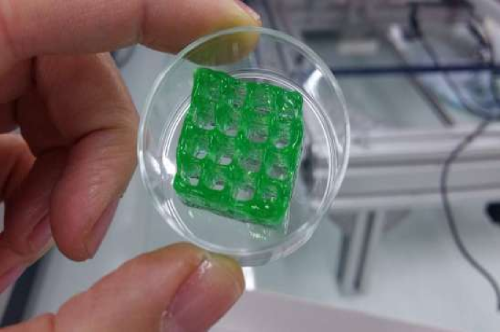- Share
- Share on Facebook
- Share on X
- Share on LinkedIn
The objectives of the BIO3D project, funded by the Carnot Polynat Institute, are to produce printed objects made from hydrogels of natural polymers (Alginate, Kappa carrageenan, microfibrillated cellulose, etc.) while controlling various phenomena during 3D printing. Several technological challenges were identified during the project, including:
- Fluidization of gels during printing
- Control of the gelation dynamics after deposition
- Control of the three-dimensional stability of the printed structures
- Mastery of the correlations between the rheological and structural properties of the gels, their printability, and the quality of the resulting deposits (mechanical properties, resolution, adhesion, robustness).

A 3D printer prototype has been designed and built within the laboratory, enabling the extrusion and printing of various materials. In particular, the focus has been on studying the printability of alginate, a natural polymer derived from brown algae, due to its potential applications in regenerative medicine and cellular tissue production.
To achieve this, a double-syringe extrusion system and a mixer were developed in the laboratory. Utilizing data obtained from studying the rheological behavior of alginate solutions during crosslinking, we identified the optimal printing conditions that allow for the in situ crosslinking of alginate and the printing of solid, self-supporting objects with good resolution.
- Share
- Share on Facebook
- Share on X
- Share on LinkedIn